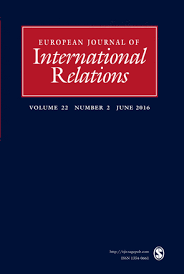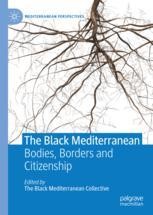Install the app
Install this application on your home screen for quick and easy access when you’re on the go.
Just tap then “Add to Home Screen”
Install this application on your home screen for quick and easy access when you’re on the go.
Just tap then “Add to Home Screen”
Install this application on your home screen for quick and easy access when you’re on the go.
Just tap then “Add to Home Screen”
 The EISA prize for best article in the European Journal of International Relations recognises the crucial role of theory and theoretical pluralism for international relations in Europe.
The EISA prize for best article in the European Journal of International Relations recognises the crucial role of theory and theoretical pluralism for international relations in Europe.
It is awarded to theoretically innovative articles that elaborate a novel idea, make a significant contribution to existing debates, provide a rigorous analysis and impetus for new research.
In 2020, the jury awarded the prize jointly. The winners are Ida Danewid, for The fire this time: Grenfell, racial capitalism and the urbanisation of empire and Deepak Nair, for Saving face in diplomacy: A political sociology of face-to-face interactions in the Association of Southeast Asian Nations.
The committee considered that Ida’s article ‘makes a powerful intervention into the debate on cities in the global political economy’… it ‘is an outstanding and sophisticated example of theoretical pluralism and integration that significantly broadens the perspective on structural violence in IR.’
Of Deepak’s article, the committee was ‘impressed by the reflexive, skilful and rigorous research grounded in social theory, extensive ethnographic fieldwork and interpretivist method of immersion. Nair’s attention to historical context and his systematic and nuanced observation of practices …directs attention to the power of this social code within a community of practice, providing impetus for new research.’
 Deepak told us ‘I was delighted to learn about this prize, and I am grateful for the recognition.
Deepak told us ‘I was delighted to learn about this prize, and I am grateful for the recognition.
I have been intrigued for a long time about how embarrassment structures social relations, so the opportunity to write about saving face and the avoidance of embarrassment in diplomacy was a culmination of a long-standing interest.
I am currently working on a book manuscript that expands on some of the themes raised in this article. If a prize translates into more readers, then I'd be very happy to receive comments and dialogue with any generous readers out there on the article itself or the topic more generally.’
 Speaking to us about her win, Ida said ‘I’m humbled to have won this award, and delighted that scholarship on race, empire, and coloniality increasingly is recognized as central to the field of IR.’
Speaking to us about her win, Ida said ‘I’m humbled to have won this award, and delighted that scholarship on race, empire, and coloniality increasingly is recognized as central to the field of IR.’
Ida Danewid is Lecturer in Gender and Global Political Economy at the University of Sussex and a Visiting Research Fellow at the Sarah Parker Remond Centre at UCL. She received her PhD from the LSE in 2018.
Ida’s research focuses on racial capitalism, anti-colonial political thought, and internationalist practices of solidarity. She is currently working on a monograph that examines abolition as a revolutionary form of world-making beyond and against the state.
 She is a co-author of The Black Mediterranean: Bodies, Borders, and Citizenship (Palgrave MacMillan).
She is a co-author of The Black Mediterranean: Bodies, Borders, and Citizenship (Palgrave MacMillan).
Deepak Nair is an Assistant Professor of Political Science at the National University of Singapore. He received his PhD from the London School of Economics and Political Science in 2015.
His theoretical interests centre on the study of micro-sociological international relations. Everyday practices, face-to-face interactions, and emotions are the units that interest him the most, and he also explores how micro-level phenomena are tethered to wider structures of class, race, and gender.
Deepak pursues this interest in the micro-world of international relations with the substantive study of diplomacy and international bureaucracy, and especially in Southeast Asia, which is where he does his fieldwork. He uses interpretive approaches and methods in his research, mainly ethnography and in-depth elite interviews, supported by historical print-media analysis.
Keywords: International Relations